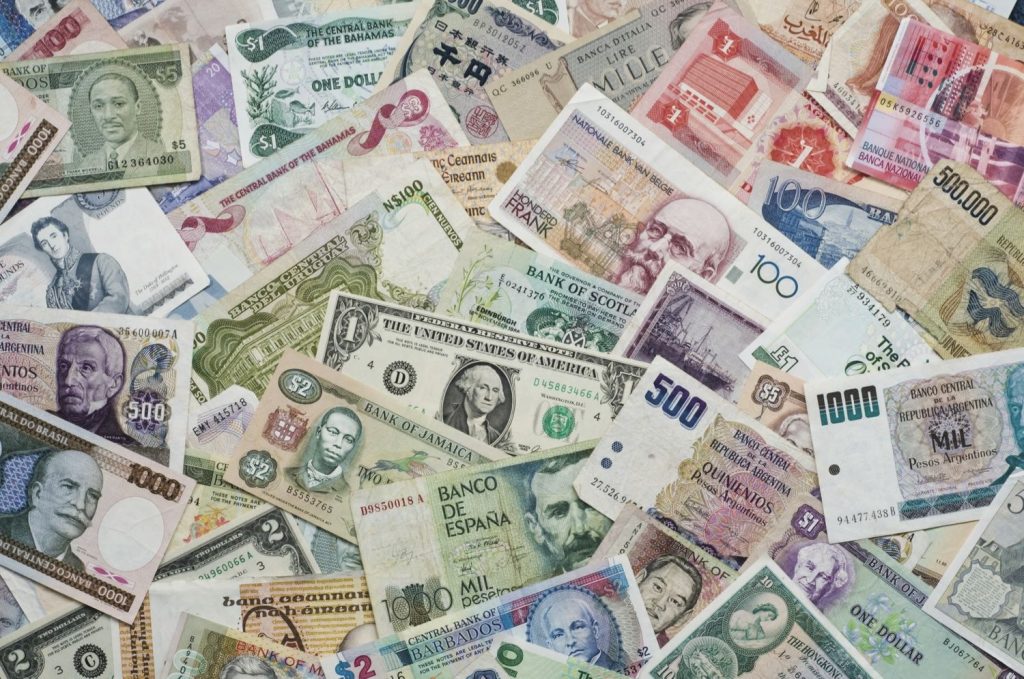
Here’s What You Need To Know About Taxation Of Money Transferred To and From India
Table of contents
Travelling abroad, whether for leisure, work, or study, often involves navigating various financial transactions between your home country and your destination. For Indian travellers, one key aspect of these transactions is understanding the taxation policies that apply to money transferred to and from India. The Indian government has implemented regulations, including taxes on foreign remittances, that can impact the cost of sending or receiving money across borders.
For those unfamiliar with these rules, the concept of a tax on foreign remittance may seem complicated. However, if you’re aware of the guidelines and how they affect your transactions, you can better manage your financial planning. In this blog, we’ll explore the taxation system for money transfers in India, why it’s relevant for travellers, and how you can mitigate additional costs when sending or receiving money abroad.
Understanding Tax Collected on Source for Foreign Remittances
Before diving into the specifics of the tax on foreign remittance, it’s essential to understand what constitutes a foreign remittance. A remittance refers to the transfer of money by someone in one country to an individual or organization in another country. This can occur for various reasons—personal transfers to family, paying for travel expenses, tuition fees, or even for investment purposes.
In the context of Indian taxation laws, the government applies taxes to both outgoing (money transferred from India to another country) and incoming remittances (money transferred from abroad to India). Whether you’re transferring funds for a holiday, making payments for a study-abroad program, or covering travel-related costs, these remittances could be subject to taxation.
The Liberalized Remittance Scheme (LRS)
One of the primary regulations that Indian travellers should be familiar with is the Liberalized Remittance Scheme (LRS). Introduced by the Reserve Bank of India (RBI), the LRS allows Indian residents to remit up to USD 250,000 per financial year for permissible current or capital account transactions, such as travel, education, and medical expenses.
While this scheme provides flexibility for those travelling abroad, it’s important to note that the Indian government levies taxes on these outward remittances under the tax on foreign remittance framework. In recent years, the Indian government introduced a Tax Collected at Source (TCS) on foreign remittances under the LRS. This means that any individual who transfers funds abroad for purposes covered under LRS may be subject to a tax deduction at the time of transfer.

How the T on Foreign Remittance Works
To clarify how the tax collected at source on foreign remittances functions, let’s take a closer look at the TCS provisions and how they are applied. As of October 2020, a TCS is collected at a rate of 5% for any foreign remittance exceeding INR 7 lakh (approximately USD 8,500) in a financial year. For example, if you transfer INR 10 lakh (USD 12,000) for travel purposes, the excess amount over INR 7 lakh (INR 3 lakh in this case) would be subject to a 5% TCS. This means you’ll need to pay an additional INR 15,000 as tax on the transfer.
If the remittance is made to pay for educational purposes, where the funds are sourced from an educational loan, the applicable TCS is reduced to 0.5% of the amount exceeding INR 7 lakh. Similarly, if you’re sending money abroad to cover expenses such as healthcare or business purposes, the same TCS rates apply.
The tax collected via TCS can be adjusted against your income tax liability, meaning that while you pay the TCS upfront during the transfer, you can claim it when filing your tax returns in India.
Taxation on Inward Remittances
On the flip side, if you’re receiving money from abroad while travelling to India—perhaps to cover travel costs, business expenses, or personal transfers from family—the tax treatment is different. Inward remittances, or money received in India from a foreign country, are not subject to any TCS on foreign remittances directly. However, the nature of the remittance and its purpose may determine whether it is considered taxable under Indian law.
For example, if the money received is a gift, it could be exempt from taxation if it falls below INR 50,000. However, if it exceeds this amount, it could be classified as taxable income. Similarly, if the remittance is for business or income-generating activities, it would be considered taxable under the Indian income tax laws.
Travellers should be mindful of these rules to ensure compliance with Indian tax laws when receiving money from foreign sources while abroad or upon returning to India.
Relevance of the Tax on Foreign Remittance for Travelers
The tax on foreign remittance is particularly relevant for travellers who need to manage finances between India and a foreign country. Whether you’re travelling for an extended vacation, studying abroad, or temporarily relocating for work, the LRS guidelines and TCS provisions will directly impact the cost of transferring money.
If you’re planning a long trip abroad and need to send significant sums of money to cover expenses like accommodation, transportation, or tour bookings, understanding how TCS applies can help you avoid unexpected tax liabilities. You can also consider pre-arranging your remittances in smaller amounts to stay below the INR 7 lakh threshold, which would exempt you from paying TCS on certain transfers.
Additionally, for those studying abroad or covering medical expenses, the reduced TCS rate of 0.5% can be a benefit, but it’s still essential to factor in these taxes when planning your overall budget.
Methods to Reduce the Impact of the Tax on Foreign Remittance

There are several strategies that Indian travellers can use to minimize the impact of the TCS on foreign remittance:
1. Timely Remittances: If your remittances are likely to exceed the INR 7 lakh limit within a financial year, plan your transfers strategically. You can stagger payments across different years to avoid crossing the threshold and incurring TCS.
2. Explore Foreign Currency Accounts: Opening a foreign currency account or a multicurrency bank account allows you to transfer and hold funds in foreign currency without constantly converting them back to INR, reducing the need for repeated remittances and the associated taxes.
3. Use Authorized Dealers: Ensure you are using authorized dealers for foreign remittances. These could be banks, authorized money changers, or forex platforms that comply with RBI regulations and provide transparent information about the tax liabilities involved in remittance.
4. Claim TCS Refunds: Since TCS collected on foreign remittances is an advance tax, you can claim it as a refund when filing your income tax returns. Be diligent in keeping track of your remittances, as this documentation will help ensure you receive the appropriate credit during tax filing season.
5. Monitor Exchange Rates: By keeping a close watch on exchange rate fluctuations, you can choose to remit money when rates are favorable, maximizing the amount received abroad. Better exchange rates can help offset the impact of TCS and other fees, ensuring that you get the most value out of your transfer.
6. Leverage Prepaid Travel Cards: For travelers who regularly move funds internationally, using a prepaid travel card can offer some relief. These cards allow you to load multiple currencies at once, locking in favorable exchange rates. By minimizing frequent remittance needs, you can also reduce the instances of hitting the TCS threshold, effectively lowering your tax liability over time.
Forex and Its Implications for Foreign Remittances
The foreign exchange market, or forex, plays a crucial role in the process of remittances. Forex refers to the trading of currencies and is a global decentralized market where various currencies are exchanged. For travellers who need to transfer money internationally, understanding how forex works can provide insights into the costs and timing of remittances.
When transferring money to and from India, the exchange rate at the time of transfer has a direct impact on how much you’ll ultimately pay or receive. These rates fluctuate based on various factors like global economic conditions, political stability, interest rates, and inflation. A strong home currency means that you can send more money abroad with less domestic currency, while a weaker home currency may require you to send more to cover the same foreign expenses.

From a taxation standpoint, the TCS on foreign remittance is not dependent on the exchange rate, but the exchange rate itself can affect the total cost of the transfer. Forex service providers like Thomas Cook often charge fees or commissions based on the exchange rate they offer, which may include hidden markups. Therefore, it’s essential to not only be aware of the TCS on foreign remittances but also understand how forex service providers and fluctuating rates can add to the cost of your transactions.
If you’re transferring large amounts for travel, tuition, or business, keeping an eye on exchange rate trends can help you make more informed decisions. Additionally, working with a reliable forex provider can reduce the overall cost by offering better rates and lower fees, ultimately minimizing the combined burden of forex fees and remittance taxes.
The Importance of Financial Planning for International Travelers
Financial planning is a critical aspect for anyone travelling internationally, especially when it comes to managing foreign remittances. Whether you’re covering personal travel expenses, paying for overseas education, or handling business transactions, understanding the TCS on foreign remittances and other financial regulations can significantly affect your travel budget.
Travellers should start by assessing their financial needs based on the duration of their trip, the countries they plan to visit, and the currencies involved. For example, if you’re studying abroad, you’ll need to calculate not just tuition fees but also accommodation, living expenses, and potential currency fluctuations. Factoring in taxes on remittances and forex fees should be part of this financial assessment.
Once your financial needs are mapped out, it’s essential to plan how and when to send or receive money to and from India. Strategic planning can help you avoid last-minute remittances that could incur higher fees or fall under less favourable exchange rates. If possible, breaking down your transfers into smaller amounts spread over time could also help you stay below the TCS threshold, thereby minimizing the overall tax burden.
Additionally, maintaining accurate records of your remittances will prove helpful during tax filing season, as you may be eligible for TCS refunds. Proper financial planning ensures you avoid surprises and make the most out of your travel funds without being overwhelmed by foreign exchange and tax costs.
Plan Ahead for TCS on Foreign Remittances
Understanding the tax on foreign remittance is an essential part of managing your finances when travelling to and from India. While remittances can add convenience for covering travel costs, tuition, or business expenses abroad, the applicable taxes and guidelines, such as TCS, can impact your overall budget. By staying informed about the Liberalized Remittance Scheme, knowing when taxes apply, and utilizing strategies to minimize the tax burden, you can ensure smoother financial transactions during your travels. Always plan ahead, track your remittances, and consult with a tax professional if you’re unsure about the specific tax implications related to your foreign transfers.
Table of contents
Our Forex Offerings
Trending blogs for you
Top Visa on Arrival Countries for Indian Passport Holders in 2025 – Part 1
Thomas Cook Forex Card vs. HDFC Bank Regalia Forex Card: The Ultimate Showdown
Thomas Cook Forex Card vs. ICICI Bank Travel Card: Which is the Smart Choice?
Recommended Articles for you
Thomas Cook Forex Card vs Niyo Global Card: A Real Travel Comparison
Reading Time: 6 minutes 0 0 Planning a 2025 international trip and seeking the best forex card for travel to manage your international travel money? Whether you’re exploring budget-friendly destinations like Manali or jetting off to Paris, prepaid travel cards like the Thomas Cook […]
Top Visa on Arrival Countries for Indian Passport Holders in 2025 – Part 1
Reading Time: 8 minutes 1 0 Travelling around the world is an exciting and fulfilling experience, but the process of obtaining a visa can be daunting and time-consuming. Fortunately, many countries offer visas on arrival for Indians, making travel easier and more convenient. In […]
Best Forex Cards in India: Features, Benefits & How to Choose One
Reading Time: 6 minutes 0 0 Planning a 2025 international trip and searching for a secure, cost-effective way to manage your expenses? The best forex cards in India offer a cashless, budget-friendly solution for travelers like you, who enjoy affordable adventures in foreign destinations. […]
Thomas Cook Forex Card vs. HDFC Bank Regalia Forex Card: The Ultimate Showdown
Reading Time: 6 minutes 0 0 Planning an international trip in 2025 and wondering which forex card saves you money while offering convenience? The Thomas Cook Forex Card and HDFC Bank Regalia Forex Plus Card are top contenders for the best forex card for […]
Thomas Cook Forex Card vs. ICICI Bank Travel Card: Which is the Smart Choice?
Reading Time: 5 minutes 0 0 Planning an international adventure or study abroad program and wondering how to manage international spending? Whether you’re a student heading to the USA or a traveler exploring Europe, choosing the best travel card for students is crucial for […]
Currency Comparison: World Currencies VS Indian Currency Exchange Rates
Reading Time: 7 minutes 7 1 In today’s globalised world, currency exchange rates play a crucial role in international trade and finance. Currency exchange rates determine the value of one currency against another, and they fluctuate constantly based on various economic and political factors. […]
Thomas Cook Forex Card vs. Wise: Comparing Fees
Reading Time: 5 minutes 0 0 Planning a 2025 international trip and seeking the most efficient way to manage travel expenses? Whether you’re exploring budget-friendly destinations or global hubs like London, choosing the right tool for international banking is essential for cost-conscious travelers. The […]
Lowest Currencies in the World with Exchange Rates in INR
Reading Time: 8 minutes 0 0 As you plan your travels or delve into the economics of different countries, understanding currency values becomes crucial. The phrase ‘currencies with the lowest exchange rates in the world’ often piques curiosity, both for economic insights and the […]
How to Take a Career Break and Travel the World
Reading Time: 4 minutes 0 0 Have you ever dreamt of taking a career break to travel the world but felt unsure about how to make it happen? The thought of stepping away from a stable job and embracing the unknown might seem daunting, […]
Travelling with an Indian Passport: Forex Tips and Currency Regulations
Reading Time: 5 minutes 0 0 Travelling abroad is an exciting experience, but managing foreign exchange efficiently is crucial to ensure a hassle-free trip. As an Indian passport holder, understanding currency regulations, forex options, and best practices can help you avoid unnecessary complications. Whether […]
Planning a Trip with a US Tourist Visa: Best Tips for Travelers
Reading Time: 4 minutes 0 0 Planning a trip to the United States is an exciting experience, whether you’re visiting New York’s bustling streets, exploring the stunning landscapes of the Grand Canyon, or enjoying the magic of Disneyland. However, managing your finances wisely is […]
Highest Currency in the World in 2025
Reading Time: 7 minutes 14 0 It is a common knowledge that value of currencies around the world change on a regular basis. Some currencies are considered stronger than many others. There are countries where the Highest Currency is not more than 20 while […]
Why Wellness Travel is the Next Big Trend You Should Try
Reading Time: 5 minutes 0 0 In today’s fast-paced world, where work stress, digital fatigue, and lifestyle-related health issues are on the rise, more people are looking for ways to relax and rejuvenate. This has led to the growing popularity of wellness travel—a trend […]
Traveling With a Japanese Visa: Ultimate Guide
Reading Time: 4 minutes 0 0 Planning a trip to Japan? Whether you’re visiting the bustling streets of Tokyo, the serene temples of Kyoto, or the breathtaking landscapes of Hokkaido, managing your finances wisely is key to a smooth and stress-free experience. Understanding the […]
15+ Places to Visit in Ooty – The Queen Of Hill Stations
Reading Time: 9 minutes 0 0 How does this sound to you: bright green soothing slopes, mystical pathways, and clouds that kiss your hair? Ooty is replete with such immense beauty and has enough activities and elements to keep every traveler happy and satisfied.One […]
PAR: Hong Kong Visa Myths Busted
Reading Time: 6 minutes 0 0 Hong Kong, the Special Administrative Region of the People’s Republic of China (PRC), is increasingly becoming one of the most sought-after international holiday destinations for Indian tourists. This has something to do with its vibrant culture, iconic skyline, […]
Choosing the Best Forex Card for Your Travel Needs
Reading Time: 9 minutes 0 0 Travelling abroad can be an exciting adventure, but managing your finances while on a trip can sometimes be challenging. When visiting different countries, paying in local currency is essential to avoid the pitfalls of unfavourable exchange rates and […]
Top Zero Markup Credit Cards for Forex Transactions in India in 2025
Reading Time: 9 minutes 0 0 Traveling internationally often comes with various expenses, and one of the most significant is currency conversion. Traditional methods, such as exchanging cash or using credit/debit cards, usually involve hidden charges, hefty conversion fees, and unfavourable exchange rates. Enter […]
Why You Should Consider Trading Forex: 12 Key Insights
Reading Time: 5 minutes 0 0 Foreign exchange trading, commonly known as forex trading, has grown to become one of the most popular forms of trading worldwide. With a daily trading volume exceeding $7 trillion, it represents the largest and most liquid financial market. […]
Key Differences Between Regular Bank Accounts and Overseas Bank Accounts
Reading Time: 5 minutes 0 0 In a globalized world where people frequently travel, migrate, or conduct business across borders, understanding the distinction between regular bank accounts and overseas bank accounts is crucial. While both serve the primary purpose of storing and managing money, […]
 18002099100
18002099100
















